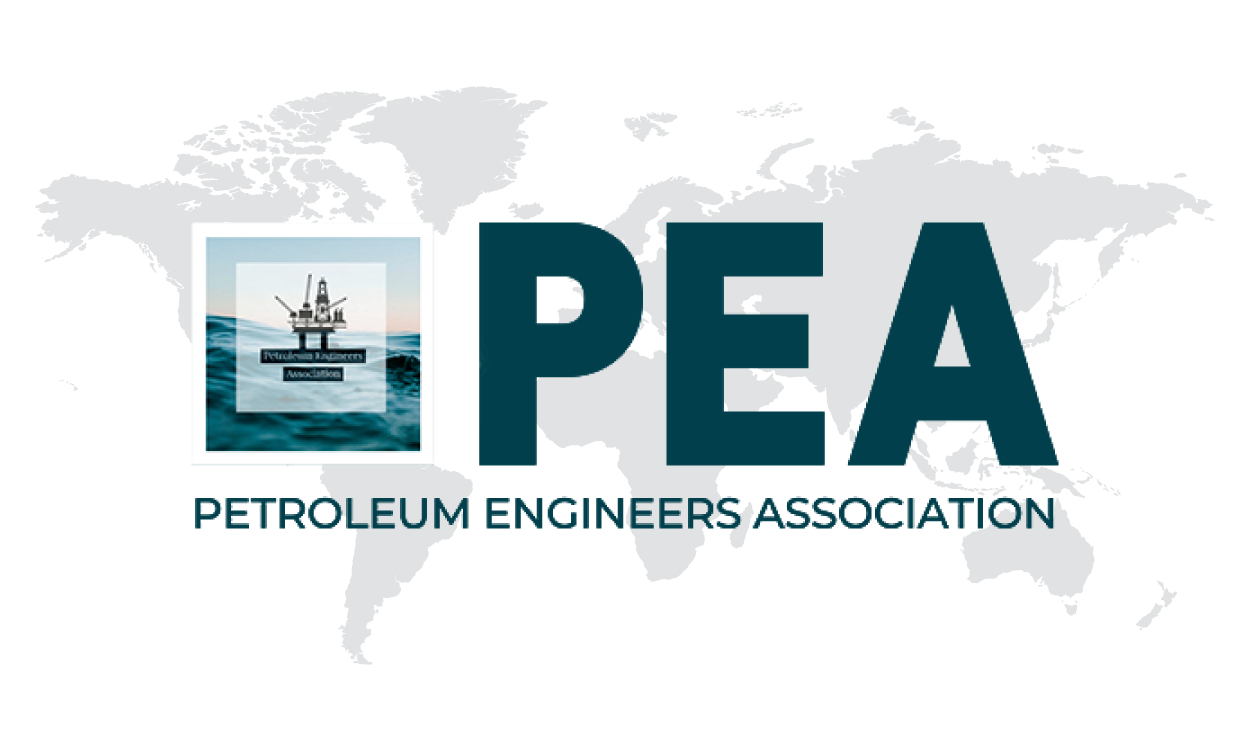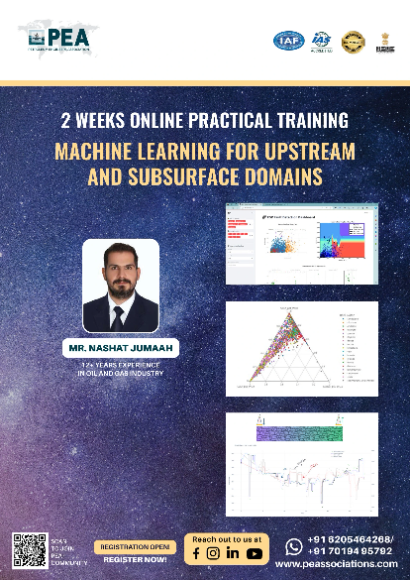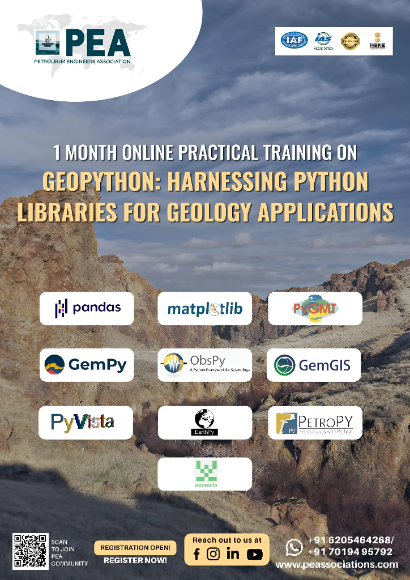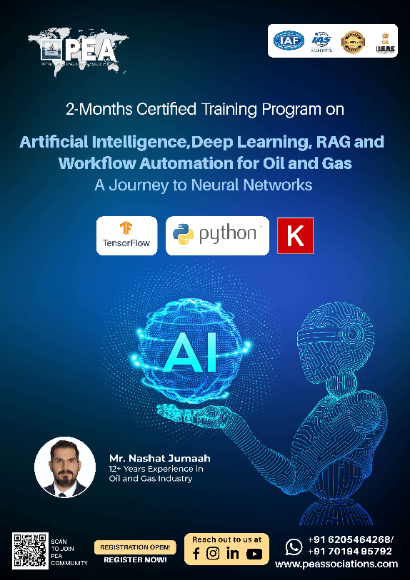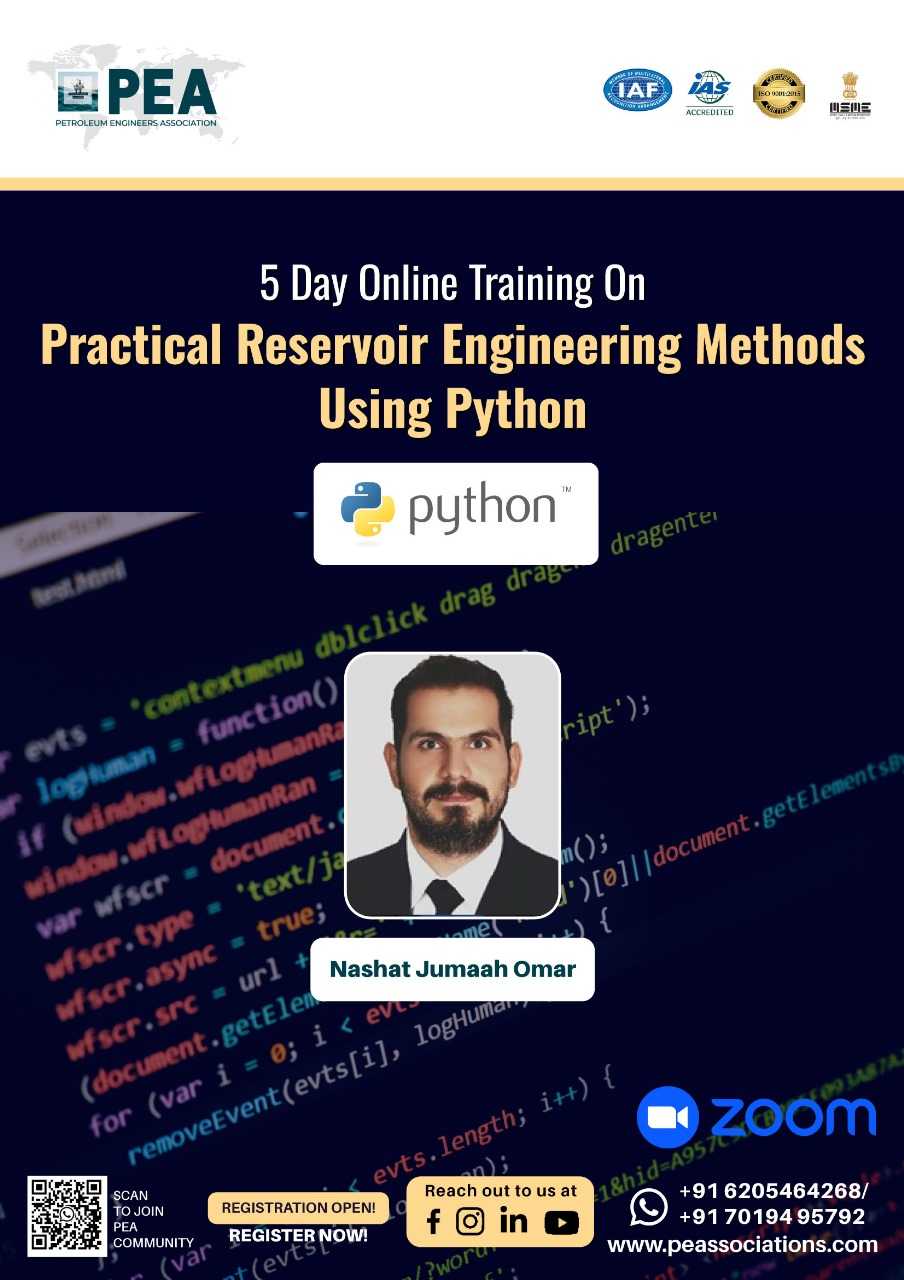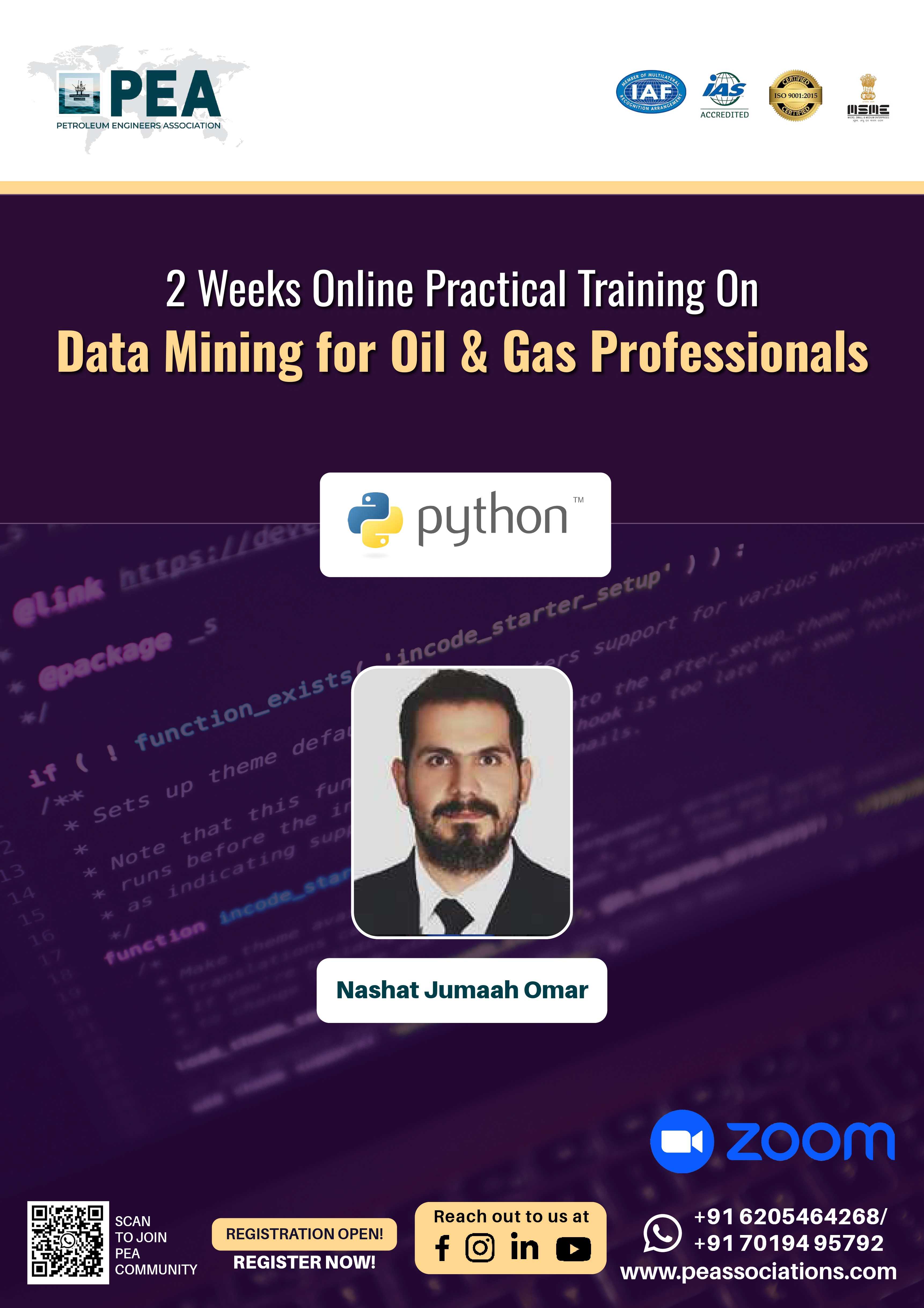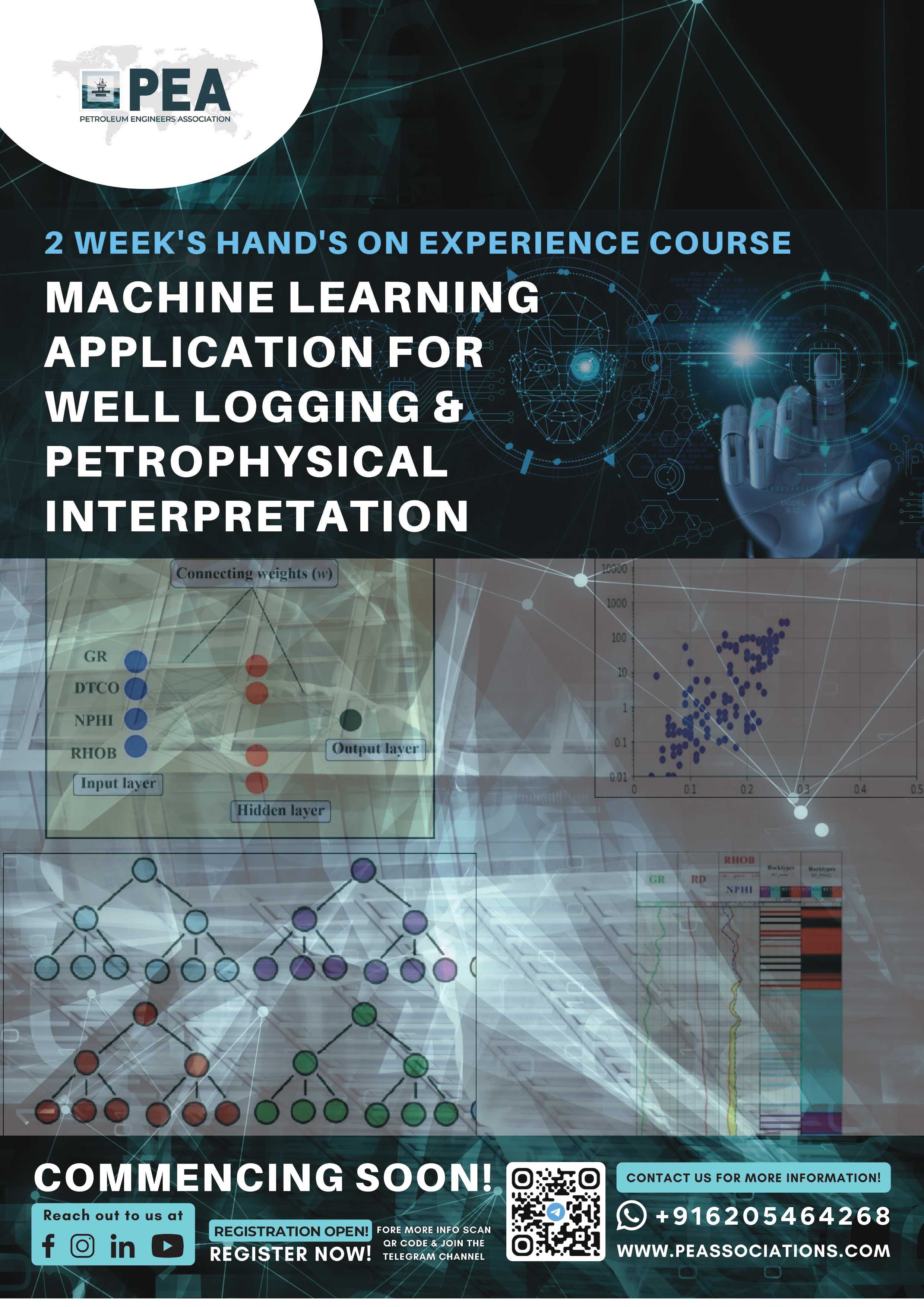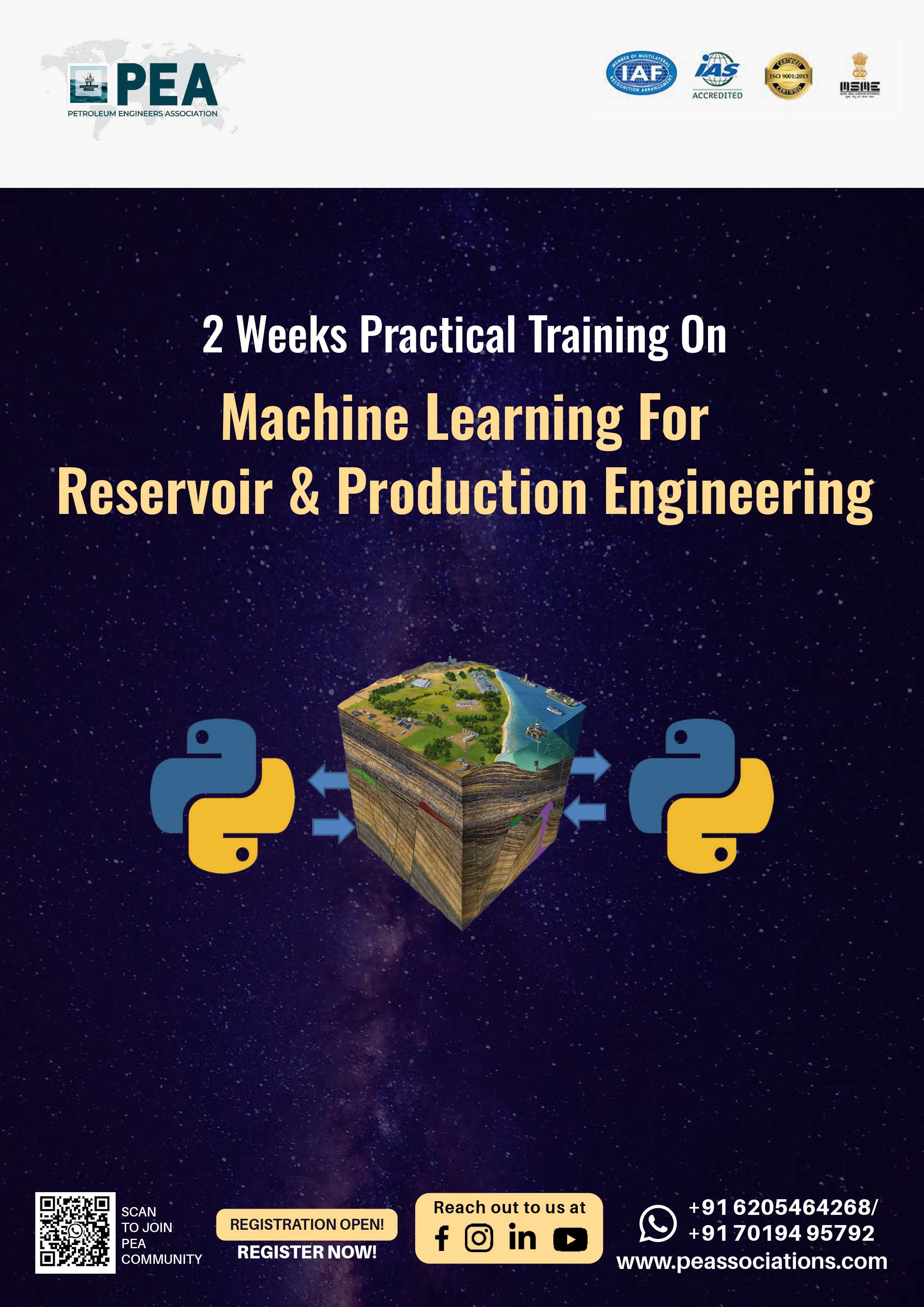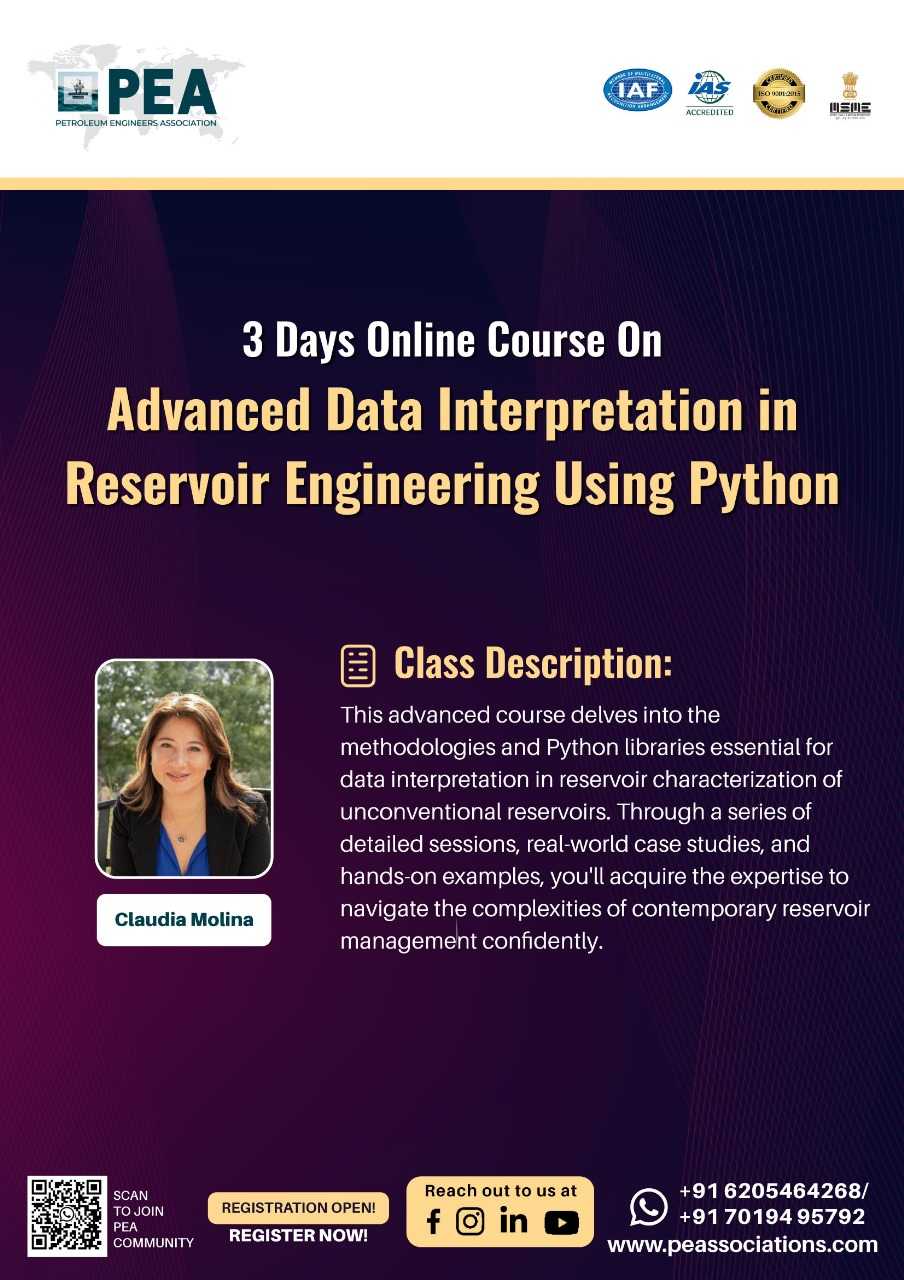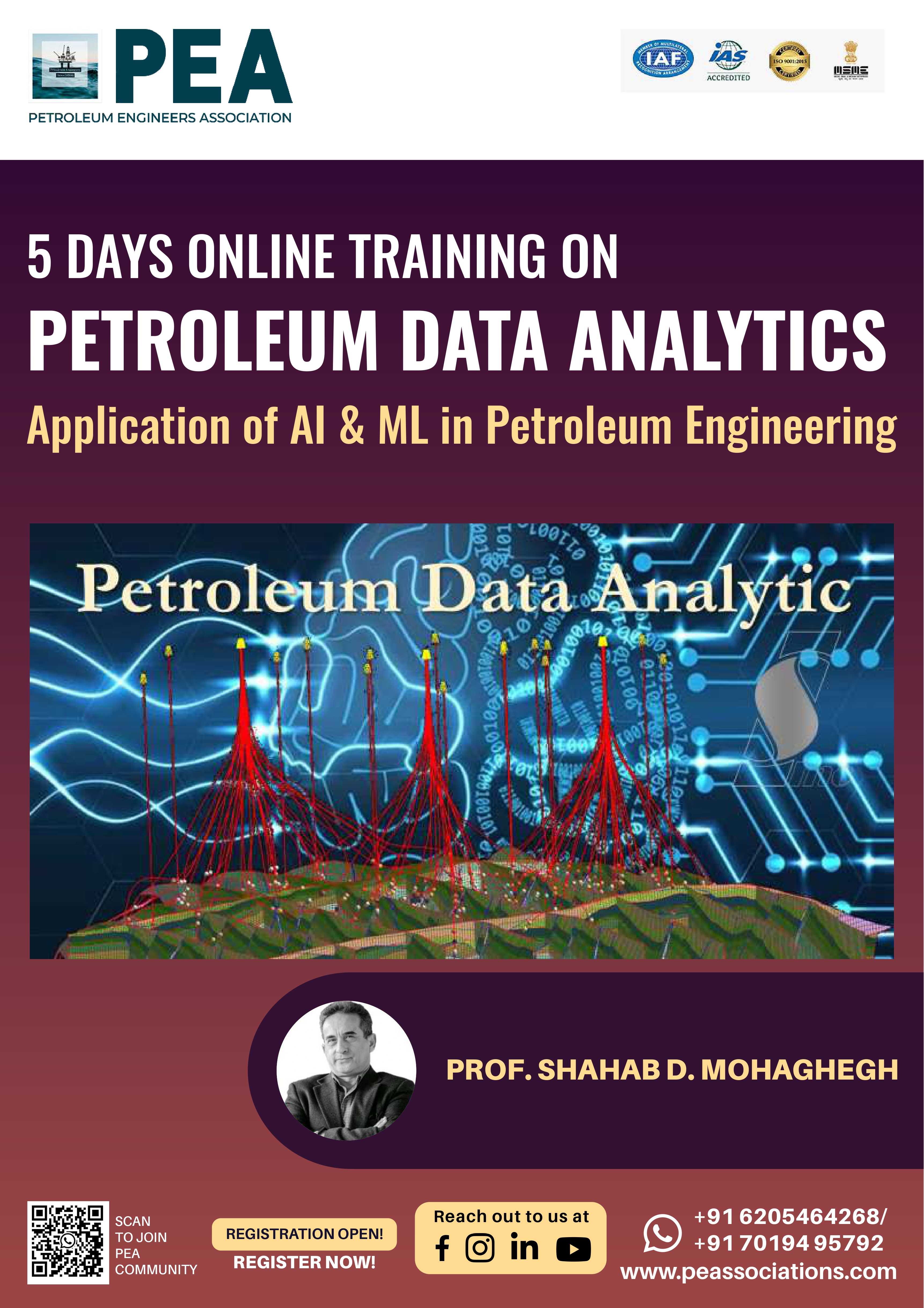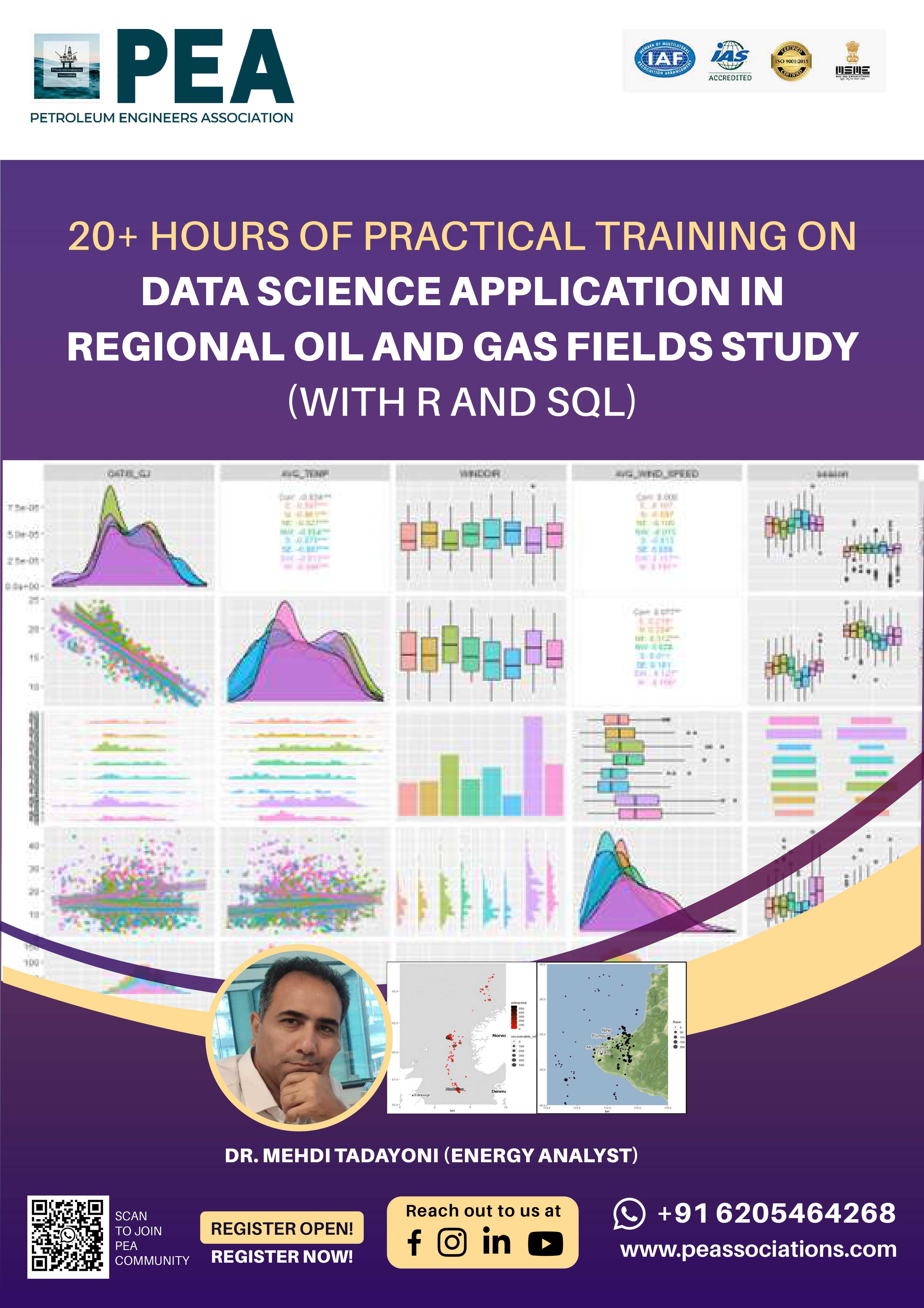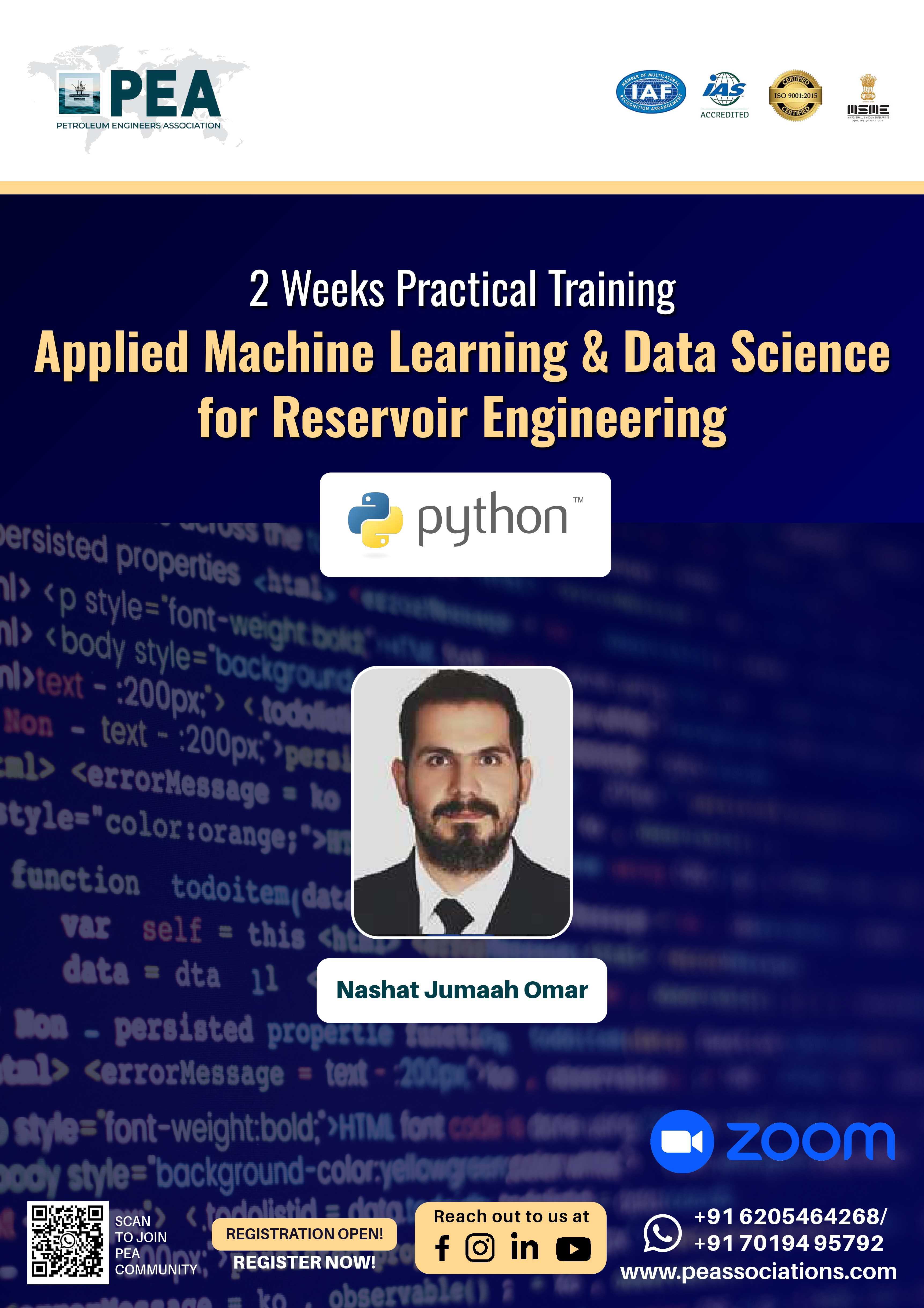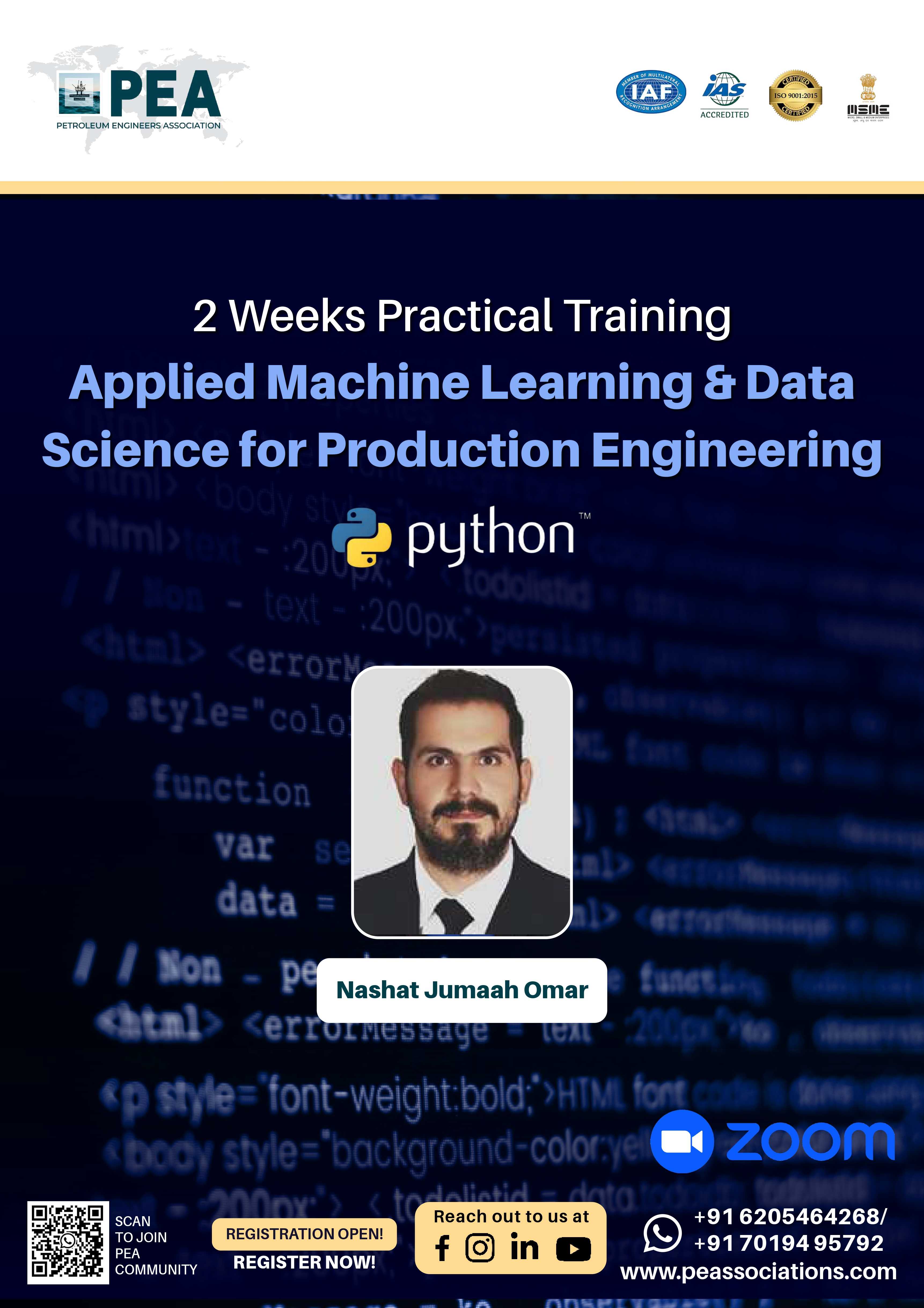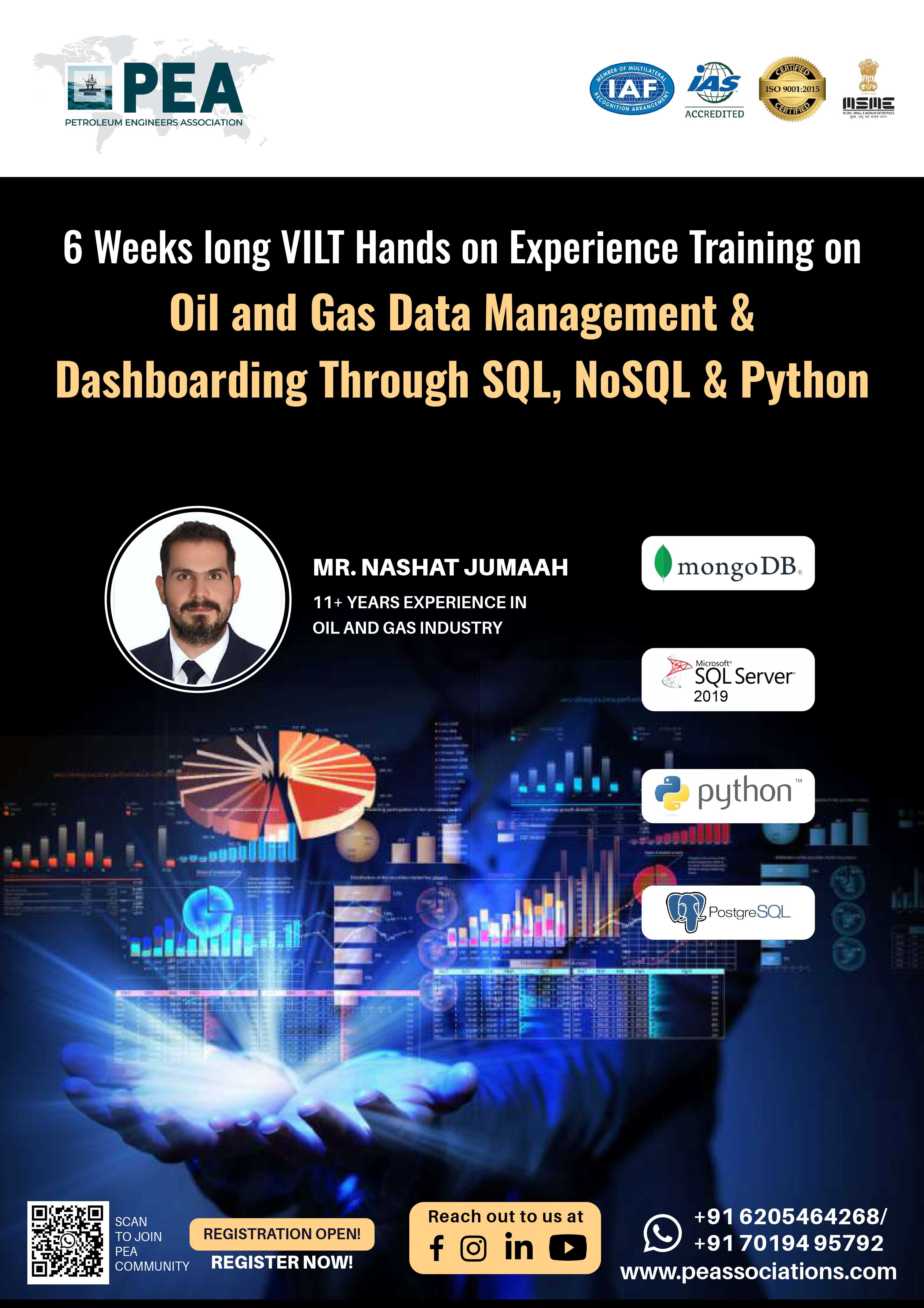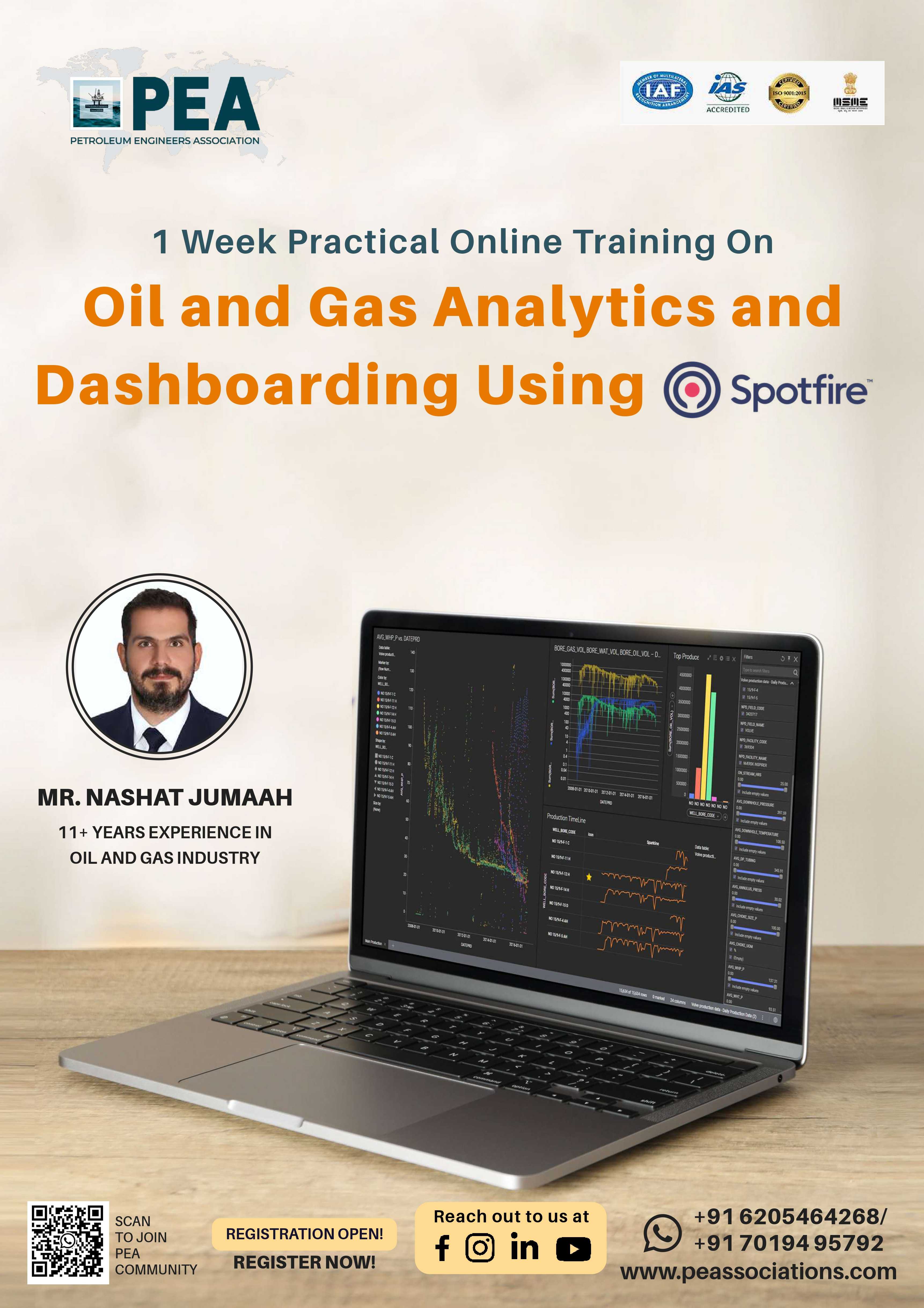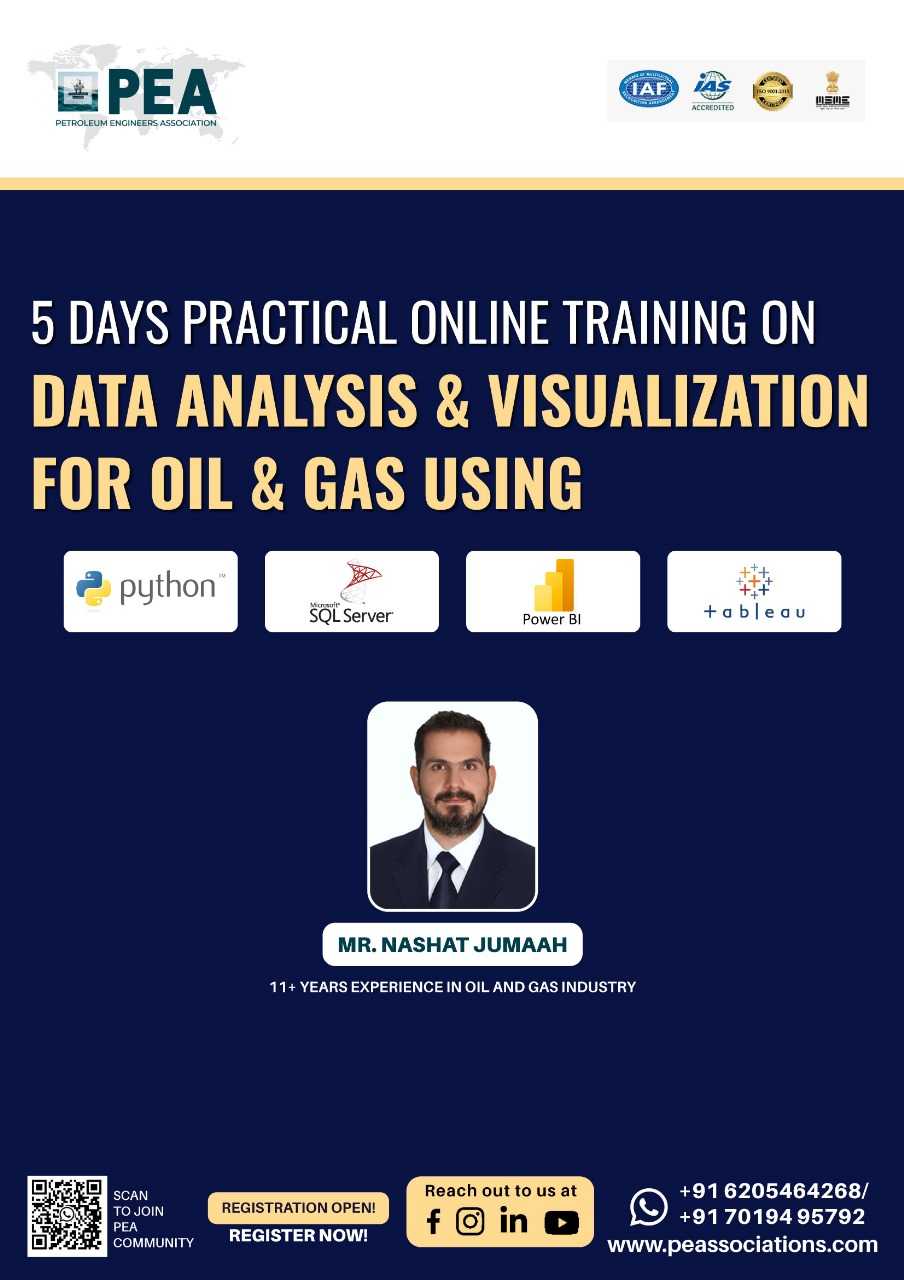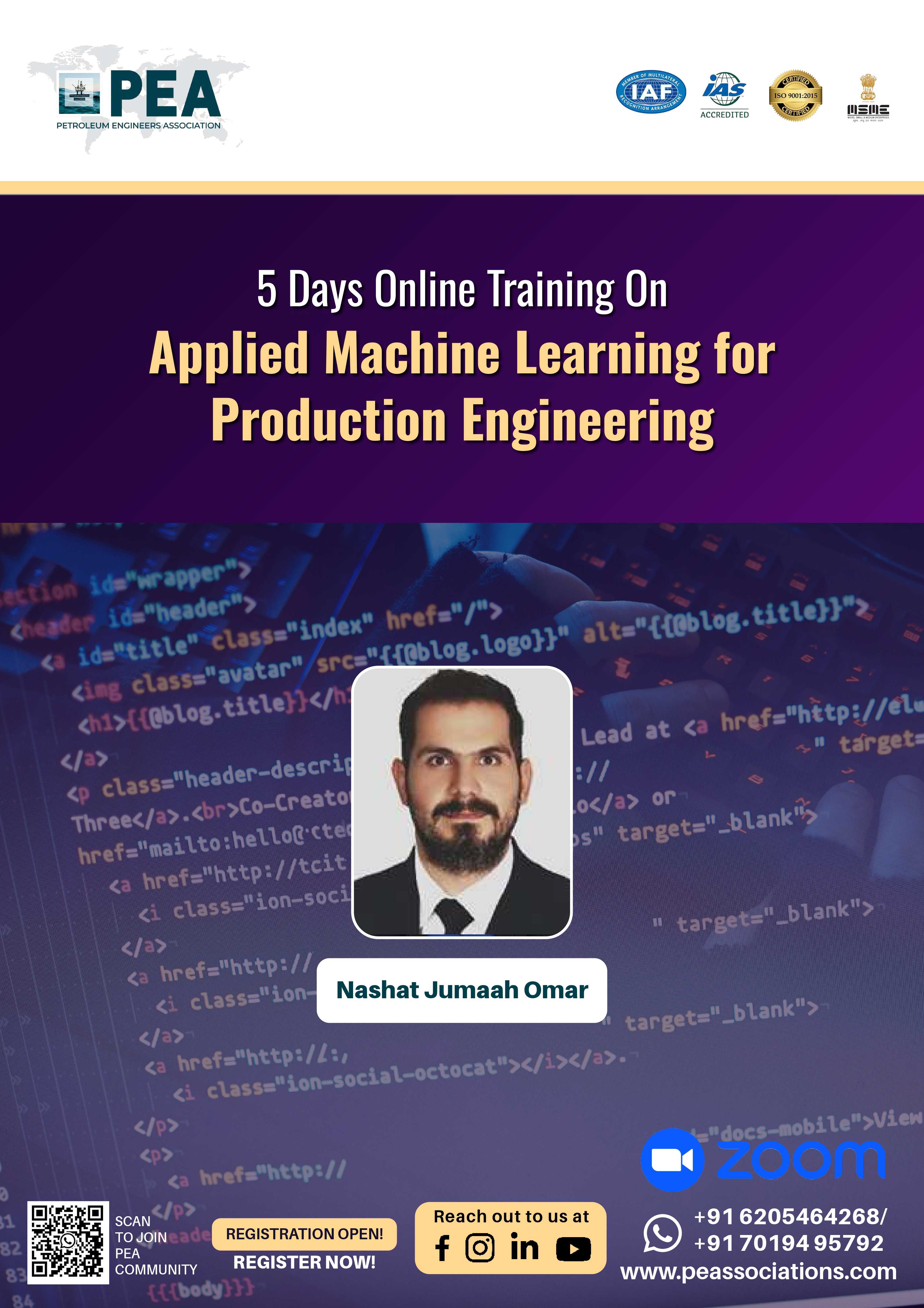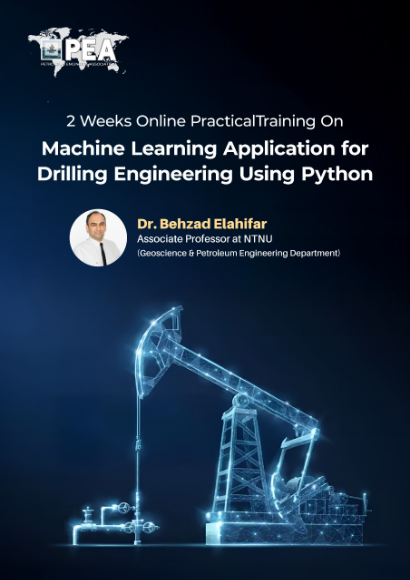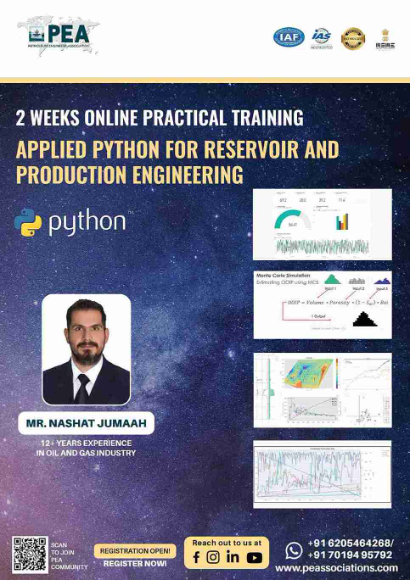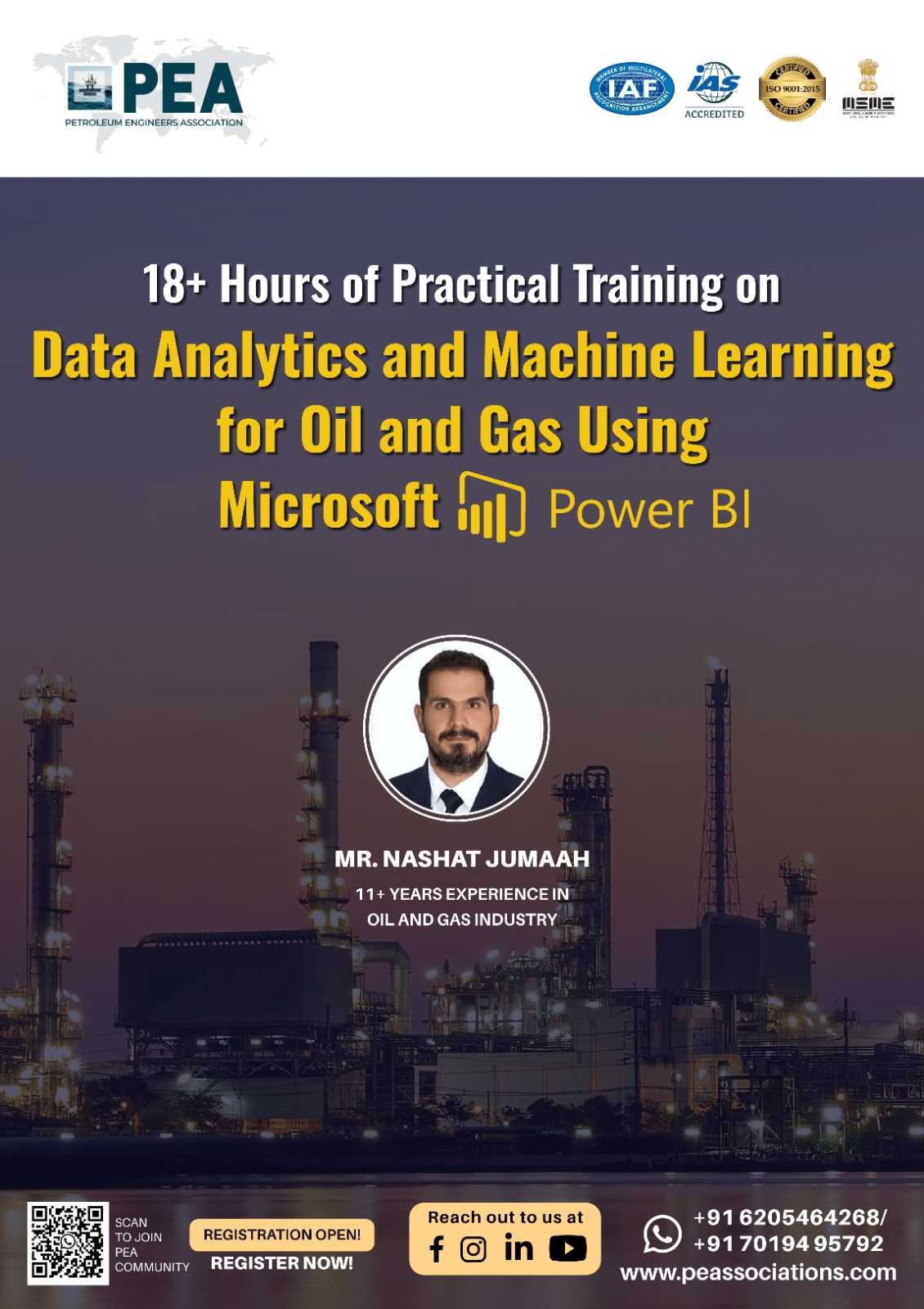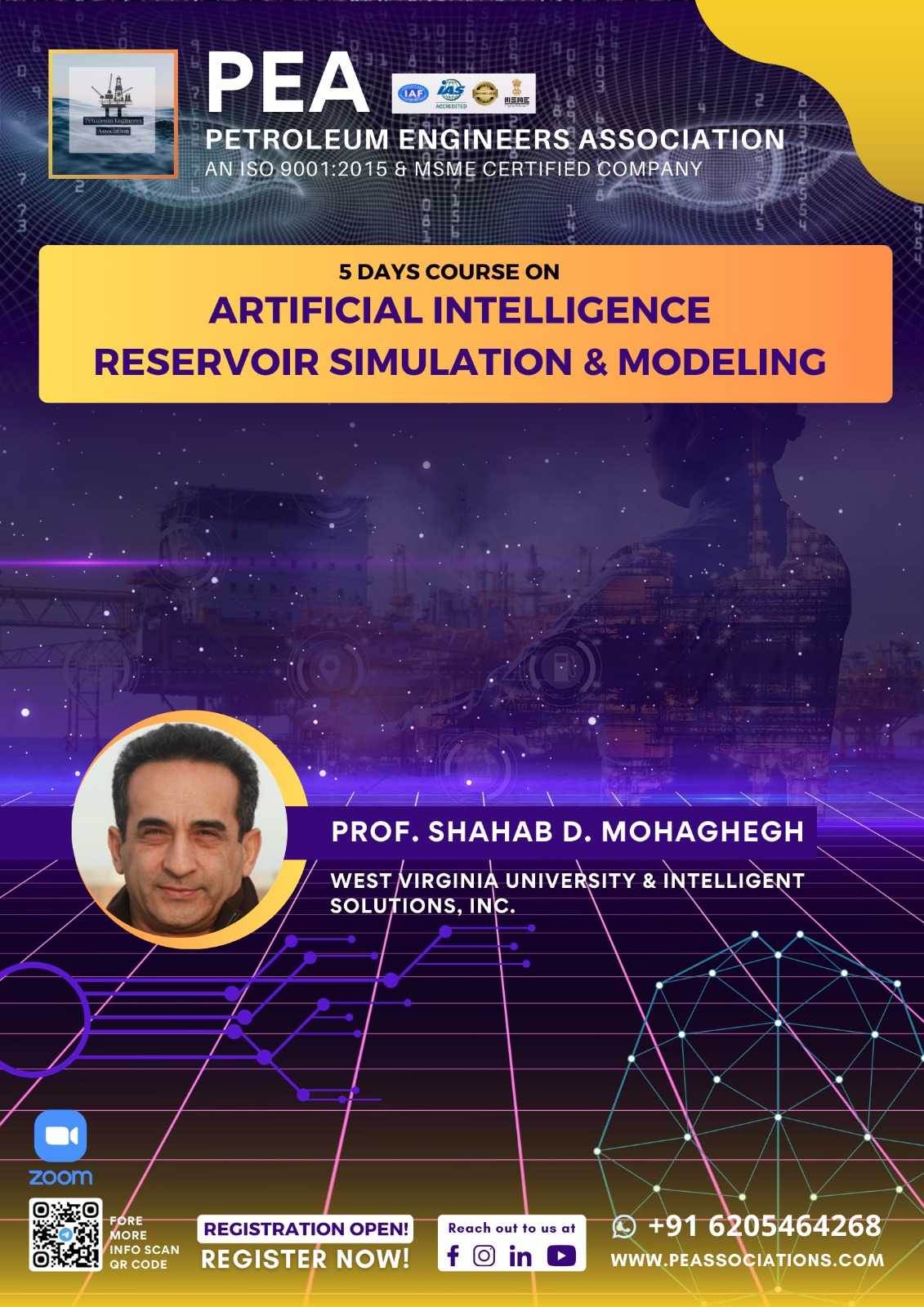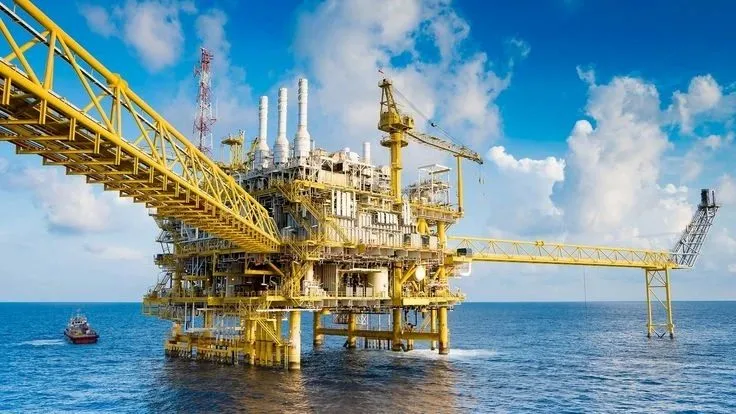Boost your team's skills and your budget! Enjoy group discounts for collaborative learning. Send an inquiry to info@peassociations.com.
Machine Learning for Upstream and Subsurface Domains
This course equips oil and gas professionals with practical knowledge of machine learning applications tailored to upstream and subsurface domains. Participants will learn how to leverage data-driven models for reservoir characterization, production optimization, drilling, and decision-making.
Description
The oil and gas industry is undergoing rapid digital transformation, with machine learning playing a pivotal role in improving efficiency, reducing costs, and enhancing decision-making. This training program provides a comprehensive overview of machine learning concepts and their direct applications in upstream and subsurface operations. From data preprocessing to predictive modeling, participants will explore real-world use cases that demonstrate how machine learning can be integrated into exploration, reservoir engineering, drilling, and production optimization. The course blends technical insights with industry-specific applications, ensuring participants gain both theoretical understanding and hands-on skills.
Our intensive Machine Learning training for the reservoir engineering domain covers ML implementation in production engineering and monitoring with hands-on projects.
It includes clustering, time production analysis, regression, and classifications using real oil and gas datasets.
By the end of this course, participants will be able to:
-
Understand core machine learning concepts and workflows.
-
Apply ML techniques to exploration, drilling, reservoir, and production datasets.
-
Identify appropriate algorithms for classification, regression, and clustering tasks.
-
Build predictive models to improve field development and operational efficiency.
-
Interpret ML results to support data-driven decision-making.
-
Recognize opportunities and limitations of ML within upstream workflows.
The program combines interactive lectures, case studies, demonstrations, and practical exercises. Real-world datasets and industry-relevant examples will be used to reinforce concepts. Participants will gain exposure to commonly used ML tools and platforms while working on hands-on problem-solving exercises that mirror industry challenges.
By adopting machine learning in upstream and subsurface operations, organizations can:
-
Enhance exploration success rates through better seismic and reservoir analysis.
-
Improve well performance prediction and production optimization.
-
Reduce operational risks and costs through smarter drilling decisions.
-
Accelerate decision-making with data-driven insights.
-
Strengthen competitiveness in a digital-first energy landscape
Participants will:
-
Gain practical skills in applying machine learning to petroleum datasets.
-
Enhance their problem-solving and analytical capabilities.
-
Increase career prospects in the evolving digital oilfield.
-
Build confidence in integrating ML tools into daily workflows.
-
Develop a forward-looking mindset towards digital transformation
This course is designed for:
-
Reservoir Engineers
-
Petroleum Engineers
-
Geoscientists
-
Drilling and Production Engineers
-
Data Scientists working in oil and gas
-
Energy professionals interested in digital transformation
-
Technical managers seeking to understand ML applications in upstream
Day 1
Topics:
-
A gentle introduction to Python Programming Language
-
Data types and structures in Python
-
Introduction to Data Visualization
-
Working with Tabulated Data using Pandas
-
Basics of Data Cleaning and Transformation using Pandas
-
Creating Calculations and Data Exports
-
Linking Excel, CSV, TXT to Python
Exercises:
-
Oil and Gas data reading and Excel connection to Python
-
Simple reservoir data visualization
-
Filtering reservoir data based on wells (single or multiple)
-
Cleaning and organizing historical data with proper datetime conversion
Day 2
Topics:
-
Introduction to Clustering
-
Understanding Distance Metrics
-
Introduction to Scikit-Learn Library for ML
-
Anomaly Detection Techniques
Exercises:
-
Clustering water production data
-
Detecting anomaly in production data
Day 3
Topics:
-
Introduction to Classification
-
Voting and Decision Trees
-
KNN Method
-
Decision Tree and Random Forest
-
Python Plotting Techniques
Exercises:
-
Classifying ESP operational problems
-
Predicting flow regime type
Day 4
Topics:
-
Introduction to Continuous Data and Relationships
-
Visualization & Correlation Matrix
-
Regression Analysis
-
Linear Regression Fundamentals
-
Support Vector Regression (SVR)
-
Xtreme Gradient Regression (XGBoost)
Exercises:
-
Training ML to behave like PROSPER software
-
Predicting hydrocarbon properties using ML
Day 5
Topics:
-
Introduction to Time-Bounded Data in Oil & Gas
-
Decline Curve Analysis (DCA) and Limitations
-
Introduction to Time Series Analysis (TSA)
-
Time Series Data Patterns & Components
Exercises:
-
Predicting shale production decline using AR models
-
Predicting water cut based on WHP, Qo, Qg
Day 6
Topics:
-
Python Programming Refresher
-
Data Types and Structures
-
Visualization with Pandas
-
Data Cleaning and Transformations
-
Exporting Data
Exercises:
-
Manipulation and analysis of production, reservoir, and petrophysical data
Day 7
Topics:
-
Introduction to Unsupervised Learning
-
Clustering Concepts
-
Distance Metrics
-
Scikit-Learn for ML
-
Anomaly Detection Methods
-
Local Outlier Factor with Time Window
Exercises:
-
Clustering petrophysical data
-
Anomaly detection in production data
-
Dashboarding for clustering and opportunity identification
Day 8
Topics:
-
Introduction to Supervised Learning
-
Data Types & Classification
-
Labels and Events in Oil & Gas
-
Decision Trees & Related Algorithms
-
Pandas DataFrames for Classification
-
Binary & Multiclass Classification
-
Decision Maps
Exercises:
-
Classifying formation layers from well logs
-
Predicting asphaltene deposition possibility
-
Rock type identification using mineral analysis
Day 9
Topics:
-
Continuous Data & Correlations
-
Linear Relationships
-
Regression Techniques
-
Linear Regression
-
Support Vector Regression
-
XGBoost Regression
Exercises:
-
Training ML as a numerical simulator
-
Predicting PVT properties
-
Predicting water cut from KPIs
-
Predicting petrophysical properties from LAS files
Day 10
Topics:
-
Time-Bounded Data in Oil & Gas
-
Decline Curve Analysis vs Time Series Analysis
-
Time Series Data Patterns
-
Simple & Exponential Moving Averages
-
AR and ARIMA Models
Exercises:
-
Predicting oil decline using AR models
-
Predicting water cut from WHP & oil rate
-
Multi-well data fitting with AR models
-
Reservoir pressure forecasting
On successful completion of this training course, PEA Certificate will be awarded to the delegates.

Mr. Nashat J. Omar With over 12+ years of specialized experience in petroleum engineering, focus on production and flow assurance brings valuable expertise to the energy sector.
He possess a strong command of Python and C#, which empowers him to create efficient data management solutions and streamline workflows.
His collaborative nature and adaptability enable him to thrive in multidisciplinary settings, where he consistently contributes to success through innovative problem-solving.
He is dedicated to continuous learning and staying ahead of industry advancements, ensuring that he can enhance operational efficiency and guarantee robust flow assurance.

